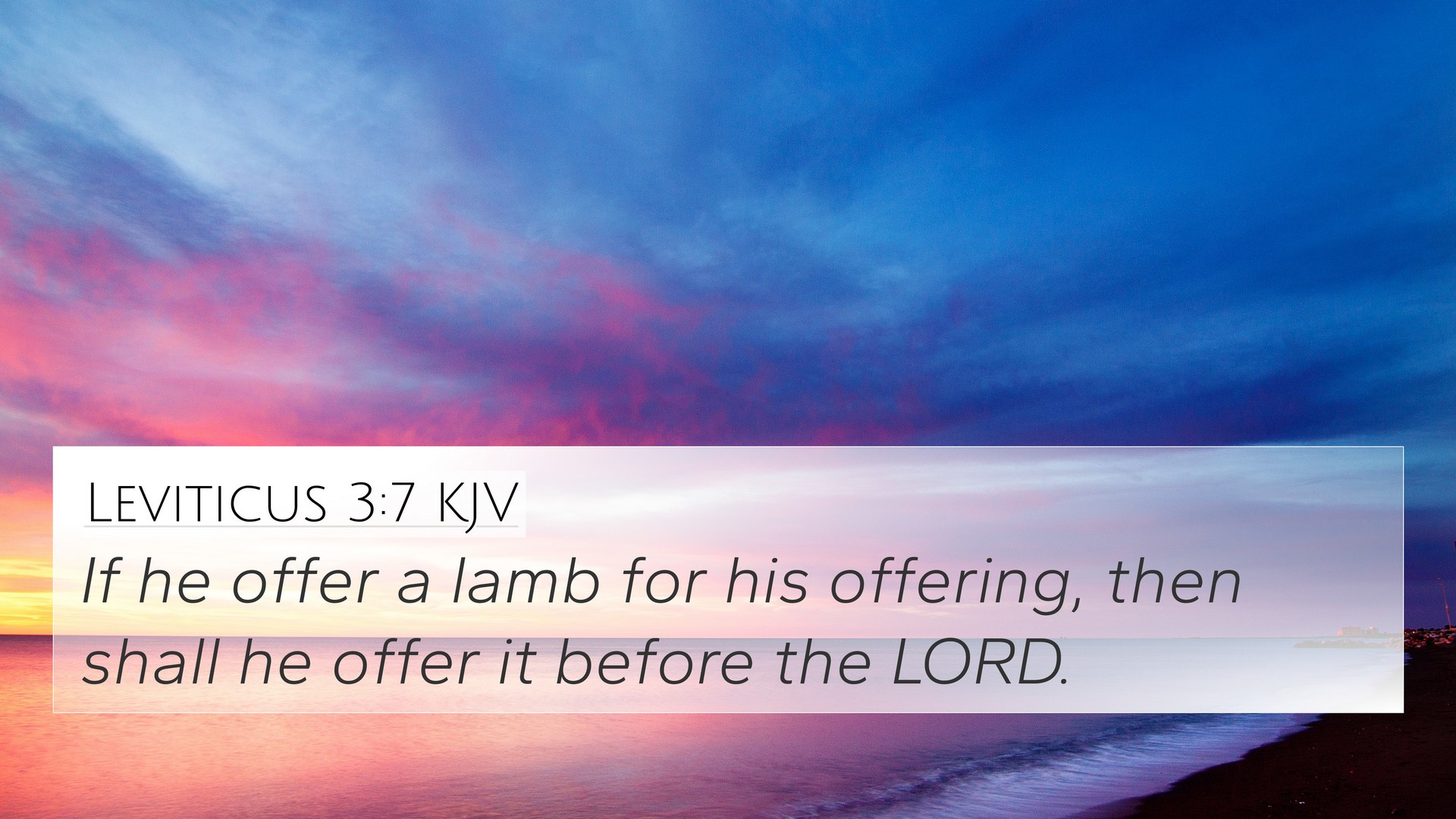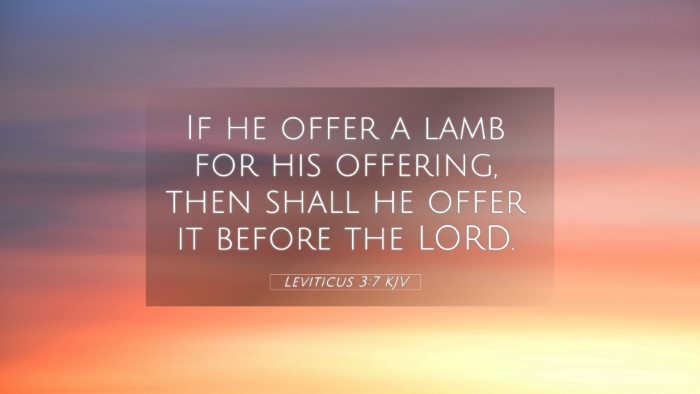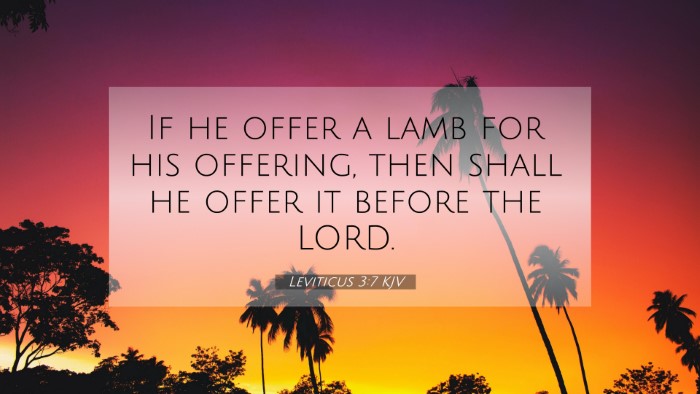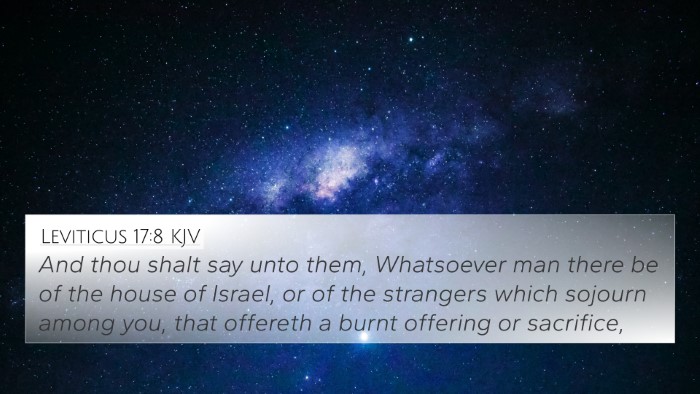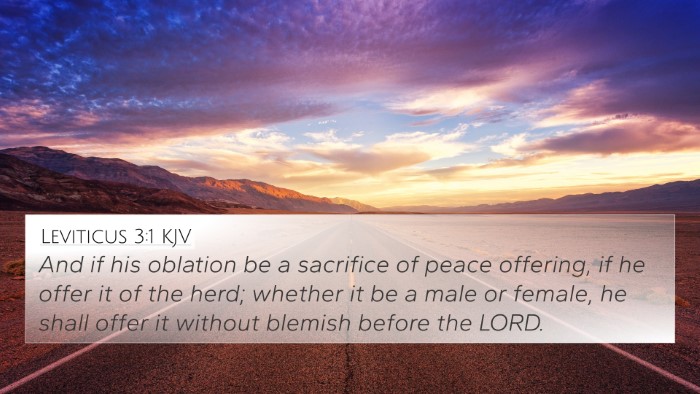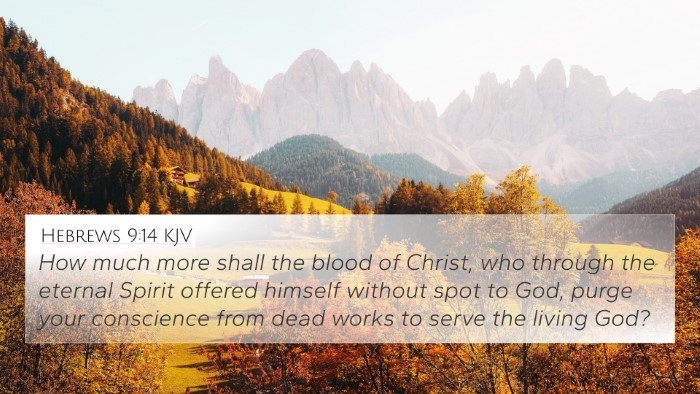Understanding Leviticus 3:7
Leviticus 3:7 states: "If he offers a lamb as his offering, then he shall offer it before the Lord." This verse is part of the instructions given to the Israelites regarding peace offerings, outlining the proper procedures for presenting such offerings. The peace offerings symbolize fellowship and communion with God, as well as expressions of gratitude.
Insights from Commentaries
In analyzing the meaning of Leviticus 3:7, we can draw insights from public domain commentaries, such as those by Matthew Henry, Albert Barnes, and Adam Clarke:
-
Matthew Henry:
Henry emphasizes the significance of voluntary offerings. He notes that the offering of a lamb indicates not just obedience but also a joyful acknowledgment of God's blessings. It fosters a sense of connection between the worshiper and God.
-
Albert Barnes:
Barnes highlights that lambs were often seen as ideal offerings due to their innocence and value, thus making them proper representations of the worshiper's honor to God. He delves into the symbolism of lambs as foreshadowing the ultimate sacrifice of Christ.
-
Adam Clarke:
Clarke provides a detailed explanation of the different types of peace offerings, underlining the significance of offering a lamb. He discusses how peace offerings serve as a means of reconciliation and foster communal relationships within the community.
Bible Verse Cross-References
Leviticus 3:7 connects to various other Bible verses that enhance its meaning. Here are some important cross-references:
- Leviticus 7:11-15 - Discusses the details of peace offerings.
- Exodus 29:38-42 - Outlines offerings and sacrifices, emphasizing their significance.
- Romans 12:1 - Calls believers to present their bodies as living sacrifices, linking to the concept of offerings.
- Hebrews 10:5-10 - Describes the ultimate sacrifice of Christ, highlighting the transition from animal sacrifices to the one perfect offering.
- 1 Peter 1:19 - Refers to Jesus as the lamb without blemish, emphasizing the sacrificial nature of both the Old and New Testament offerings.
- Psalm 50:5 - Invites the faithful to gather for the sacrificial offerings, signifying communal worship.
- Isaiah 53:7 - Illustrates the sacrificial lamb imagery while pointing towards Jesus as the suffering servant.
- Micah 6:6-8 - Discusses what God requires of His people regarding sacrifices and justice, resonating with the true spirit behind offerings.
- Colossians 1:20 - Explains reconciliation through Christ's sacrifice, paralleling the peace offerings.
- Hebrews 13:15 - Encourages the offering of praise to God, linking worship and offerings.
Thematic Connections
The thematic connections between Leviticus 3:7 and other Bible verses can be discerned through a comparative analysis that highlights essential Biblical principles:
-
Worship and Communion:
The peace offering seen in Leviticus 3:7 represents not only a physical offering but also the restoration of relationship with God, akin to Romans 12:1’s call to present ourselves as living sacrifices.
-
Sacrifice and Atonement:
The lamb as an offering foreshadows Christ (1 Peter 1:19); thus, the Old Testament practices are integral to understanding New Testament theology regarding atonement.
-
Community and Fellowship:
Leviticus encourages community participation through offerings, a theme mirrored in Psalm 50:5, which emphasizes collective worship and gratitude towards God.
Tools for Bible Cross-Referencing
For those looking to explore the connections in the Bible deeper, consider using:
- Bible Concordance: A comprehensive tool for finding related verses and understanding the themes throughout scripture.
- Bible Cross-Reference Guide: Offers a systematic approach to explore links between verses.
- Bible Reference Resources: Include commentaries and study guides that provide insights into contextual meanings.
How to Use Bible Cross-References
Understanding how to find cross-references enhances your study of the Bible effectively. Here are some techniques:
- Study thematic connections by identifying overarching topics or phrases, much like the connection between peace offerings and reconciliation.
- Examine how various passages provide corroborating evidence or expansive context on similar themes, fostering deeper understanding.
- Utilize tools such as cross-reference Bibles which provide direct links between scripture passages, enhancing comparative analysis.
Conclusion
Leviticus 3:7 serves as a pivotal scripture demonstrating the importance of offerings, and it is enriched through comparative Bible verse analysis. The connections identified with various Biblical texts illustrate an inter-Biblical dialogue that reveals both the consistency of God's message and the customizable nature of worship practices. To fully appreciate these intricacies, one is encouraged to continuously engage with scripture, utilizing available resources for an in-depth understanding.
